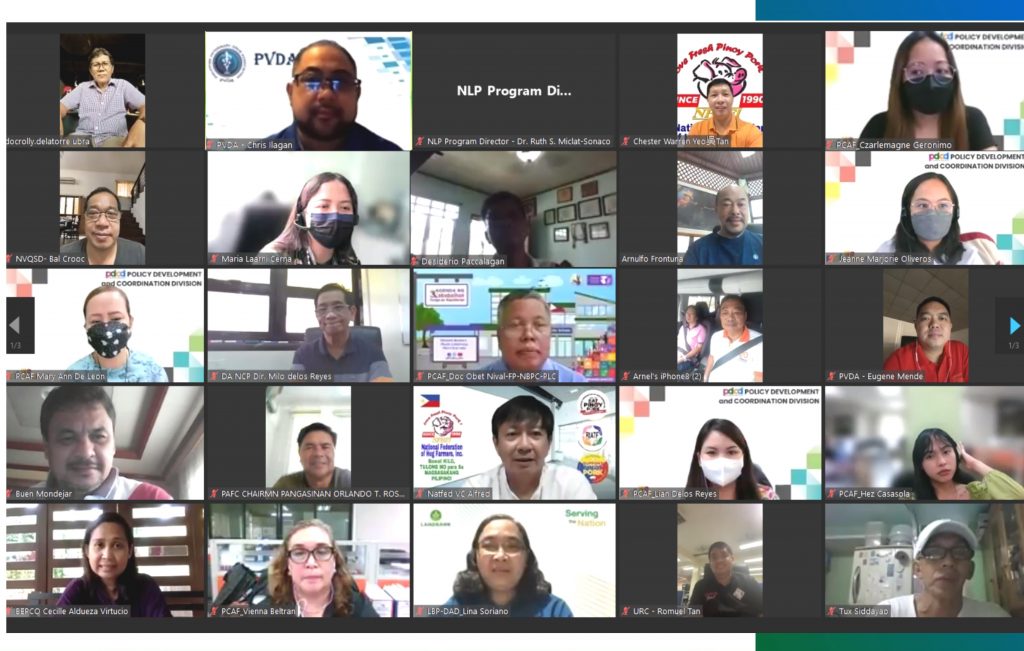
The National Banner Program Committee on Poultry, Livestock, and Corn (NBPC on PLC) discussed the updates on the supply outlook, prices, and importation volume of major poultry and livestock commodities, feeds, and animal feed ingredients in their special meeting on July 29, 2022.
The National Livestock Program (NLP) presented the food supply outlook (local production plus imports) for the remainder of 2022, with the sufficiency level of pork projected at 94% for Q3 and 97% for Q4. On the other hand, the sufficiency level for chicken is projected at 108% for Q3 and 100% for Q4.
The DA Agribusiness and Marketing Assistance Service (AMAS) reported that prices of major poultry and livestock commodities have remained fairly stable, except for the price of eggs, which increased by 16.67% since last month.
According to Dr. Herman Cruz Jr. of the Philippine Association of Breeder Layers, Inc., the poultry industry is expecting a shortage in egg production since no importation from January to July 2022 took place. The Committee also reported that a number of chicken producers have already ceased production due to the constraints caused by several local executive orders, emphasizing the importance of harmonizing national and local issuances.
In order to address the domestic demand for poultry in the coming months, the Committee recommended to the Bureau of Animal Industry (BAI) to encourage the importation of Parent Stocks, Grand Parent Stocks, and Day-Old Chicks from Avian Influenza-free countries. Another special meeting will also be conducted to discuss updates on the harmonization of national issuances from DA and BAI with local executive orders.
NBPC on PLC also called for DA’s assistance for the provision of additional production inputs to the sector and the implementation of additional strategies to address the rising prices of feeds and feed ingredients.
The Committee suggested the provision of more post-harvest facilities to ensure the quality of domestically-produced corn, which is a major component of animal feeds. The issue of increasing the productivity of the local coconut industry was also discussed since it directly affects the prices of other major feed components: copra meal and coconut oil.
In order to ensure food safety and the quality of meats being sold in wet markets, the NBPC on PLC urged the National Meat Inspection Service and the AMAS to strictly monitor and ensure that stalls selling frozen meats have the appropriate storage facilities and are following food safety protocols.
Dr. Rolly de la Torre of the United Broiler Raisers Association (UBRA) also emphasized the importance of reactivating the Price and Volume Watch Committee, which solely focuses on the prices of poultry, livestock, and related commodities to help in addressing production and importation issues of PLC commodities. The reactivation of the Price and Volume Watch Committee was already approved by the DA Secretary and a Special Order for the reactivation and membership of the committee has also been drafted.
Issues related to the importation, transport, and movement of processed animal protein for aqua feed meal, which could raise biosecurity concerns if imported from countries affected by African Swine Fever, would also be discussed in the Committee’s next special meeting. | SMA











